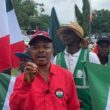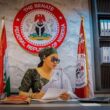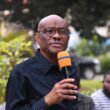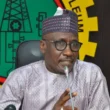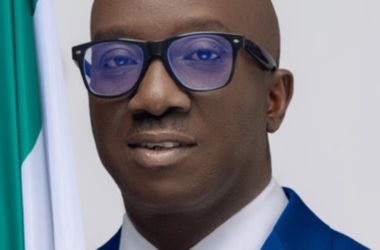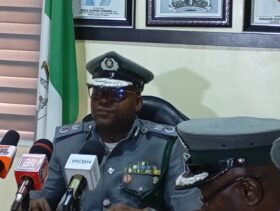Two-time Attorney-General of the Federation and Minister of Justice, Chief Kanu Agabi (SAN), has expressed concern over the lack of national unity in Nigeria, attributing the division to deep-seated divisive tendencies.
He made this known while speaking on Inside Sources with Laolu Akande, the Sunday edition of the programme on Channels Television. The show is now twice in the week, Friday at 1130am, and Sunday 6pm.
Agabi lamented that Nigeria’s adoption of the presidential system of government has not achieved its intended purpose of uniting the nation.
“We chose the [Presidential] system because that is the system a nation chooses when vesting all powers in one person, so that he can use all that power to bind the nation together. A nation adopts the presidential system when there are divisive tendencies when it is not united,” Agabi explained.
He noted further that the President under the presidential system is expected to use his powers to bind the nation together.
Agabi noted, “It [the presidential system] is a dictatorship under the Constitution. We chose that system so that the President can use that [enormous] powers to bind the nation together.” He admitted that this has largely not been the case since the nation reverted to the presidential system in 1979.
According to the elder statesman, “The creation of the 12 states [in 1967] gave rise to tremendous manpower needs. The needs that arose were met by the appointment of unqualified people. The appointment of unqualified people to high offices came with the war, came with the creation of states.”
Agabi recounted Nigeria’s political evolution, emphasizing the challenges the nation has faced since 1960.
“As at 1960 when we got independence, we can’t say we had experience of governance. We were a young nation. We were experimenting with parliamentary democracy. Just after 6 years, the military stepped in. We began to experiment with military rule. After a number of years, we entered the presidential system. So, it’s been one experiment after another.”
According to him, these experiments were compounded by the Nigerian Civil War, which erupted in 1967 and further strained the country’s already limited manpower resources.
“At the time of the outbreak of the war, the nation was already having manpower problems. The war compounded those problems,” he stated. With the creation of new states came the need for increased manpower to manage the newly formed governmental structures. Unfortunately, this need was met by appointing unqualified people to key positions, a practice that has persisted and expanded over the years.
“We went from four regions to 12 states, and now we have 36 states and 774 local government areas and councils,” Agabi explained. “Each time we multiply the manpower needs of the nation, we meet those needs by appointing unqualified people to high offices.”
According to Agabi, this widespread practice has resulted in inefficiency across various levels of governance and has contributed to Nigeria’s ongoing leadership crisis. “The appointment of unqualified people has made us inefficient. This has given rise to the leadership problems we see today,” he added.
While many advocate for legal reforms as a solution to Nigeria’s governance challenges, Agabi argued that the problem lies not with the laws but with the individuals responsible for implementing them. “The problem is not with the laws. We are constantly making new laws and amending existing ones. If you look at the Constitution between 1999 and now, we’ve amended it many times,” he pointed out.
Agabi stressed that even the best laws require capable, qualified individuals to enforce them. “The laws are not self-enforcing. The laws need good people to enforce them. However good the laws are, they don’t enforce themselves. We need to reform ourselves. We should correct ourselves. We should try to do the correct things. We shouldn’t be waiting to be corrected,” he advised.
Agabi also expressed concern about Nigeria’s misunderstanding of democracy, particularly in how political parties operate. He observed that when Nigeria transitioned to civil rule, the nation swung from one extreme to another. “We moved from dictatorship to the extreme of liberalism. People felt that we were now free, and this is where we misunderstood democracy,” he said.
According to Agabi, the belief that “good and bad are equal” in politics is a dangerous misconception. He criticized political parties for failing to function as democratic institutions, accusing them of rigging primary elections and disregarding their own rules. “The political parties are not democratic institutions. They don’t comply with their own rules. Primaries are rigged at the party level,” he lamented.
Agabi’s reflections highlight the need for self-reform and a deeper understanding of governance. As Nigeria continues to grapple with leadership challenges, his call for qualified leadership and adherence to democratic principles offers a roadmap for addressing the country’s governance woes.


